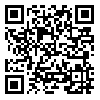Mon, Feb 16, 2026
| فارسی
Volume 26, Issue 1 (Spring 2020)
IJPCP 2020, 26(1): 2-15 |
Back to browse issues page
Download citation:
BibTeX | RIS | EndNote | Medlars | ProCite | Reference Manager | RefWorks
Send citation to:



BibTeX | RIS | EndNote | Medlars | ProCite | Reference Manager | RefWorks
Send citation to:
Navabifar F, Atashpour H, Golparvar M. The Effect of a Premarital Educational Program Based on 9- Type Personalities Types (Enneagram) on Emotional Expressiveness of Couples Preparing for Marriage. IJPCP 2020; 26 (1) :2-15
URL: http://ijpcp.iums.ac.ir/article-1-3036-en.html
URL: http://ijpcp.iums.ac.ir/article-1-3036-en.html
1- Department of General Psychology, Faculty of Education & Psychology, Islamic Azad University, Isfahan (Khorasgan) Branch, Isfahan, Iran.
2- Department of General Psychology, Faculty of Education & Psychology, Islamic Azad University, Isfahan (Khorasgan) Branch, Isfahan, Iran. ,hamidatashpour@gmail.com
2- Department of General Psychology, Faculty of Education & Psychology, Islamic Azad University, Isfahan (Khorasgan) Branch, Isfahan, Iran. ,
Abstract: (4467 Views)
Objectives: This study aimed to develop a premarital educational package based on based on 9-type personalities (Enneagram) to improve emotional expressiveness of couples preparing for marriage.
Methods: In this quasi-experimental study with pretest/posttest design, the study population consisted of all couples in the premarital stage referred to counseling centers in Isfahan, Iran during spring and summer 2017. Of these, 30 were selected and divided into two groups of intervention and control. They completed the Emotional Expressiveness Questionnaire (EEQ) before the study and 45 days after the end of intervention. The educational package was developed based on the study literature and techniques related to enneagram typology and considering its constructs, and then presented to the intervention at ten 90-min sessions once a week.
Results: The ANCOVA results indicated that the designed enneagram-based intervention could significantly affect the emotional expressiveness of the study couples. There was a significant difference between the scores of study groups after intervention (P<0.05).
Objectives This study aimed to develop a premarital educational package based on based on 9-type personalities (Enneagram) to improve emotional expressiveness of couples preparing for marriage.
Methods In this quasi-experimental study with pretest/posttest design, the study population consisted of all couples in the premarital stage referred to counseling centers in Isfahan, Iran during spring and summer 2017. Of these, 30 were selected and divided into two groups of intervention and control. They completed the Emotional Expressiveness Questionnaire (EEQ) before the study and 45 days after the end of intervention. The educational package was developed based on the study literature and techniques related to enneagram typology and considering its constructs, and then presented to the intervention at ten 90-min sessions once a week.
Results The ANCOVA results indicated that the designed enneagram-based intervention could significantly affect the emotional expressiveness of the study couples. There was a significant difference between the scores of study groups after intervention (P<0.05).
Results: The ANCOVA results indicated that the designed enneagram-based intervention could significantly affect the emotional expressiveness of the study couples. There was a significant difference between the scores of study groups after intervention (P<0.05).
Objectives This study aimed to develop a premarital educational package based on based on 9-type personalities (Enneagram) to improve emotional expressiveness of couples preparing for marriage.
Methods In this quasi-experimental study with pretest/posttest design, the study population consisted of all couples in the premarital stage referred to counseling centers in Isfahan, Iran during spring and summer 2017. Of these, 30 were selected and divided into two groups of intervention and control. They completed the Emotional Expressiveness Questionnaire (EEQ) before the study and 45 days after the end of intervention. The educational package was developed based on the study literature and techniques related to enneagram typology and considering its constructs, and then presented to the intervention at ten 90-min sessions once a week.
Results The ANCOVA results indicated that the designed enneagram-based intervention could significantly affect the emotional expressiveness of the study couples. There was a significant difference between the scores of study groups after intervention (P<0.05).
Conclusion: the designed enneagram-based educational package was effective in improving the emotional expressiveness of couples preparing for marriage through familiarity with the personality traits of themselves and their partner. These results are useful for professionals and those involved in premarital counseling to provide better services.the designed enneagram-based educational package was effective in improving the emotional expressiveness of couples preparing for marriage through familiarity with the personality traits of themselves and their partner. These results are useful for professionals and those involved in premarital counseling to provide better services.
Type of Study: Original Research |
Subject:
Psychiatry and Psychology
Received: 2019/07/27 | Accepted: 2020/01/12 | Published: 2020/04/1
Received: 2019/07/27 | Accepted: 2020/01/12 | Published: 2020/04/1
| Rights and permissions | |
 |
This work is licensed under a Creative Commons Attribution-NonCommercial 4.0 International License. |






